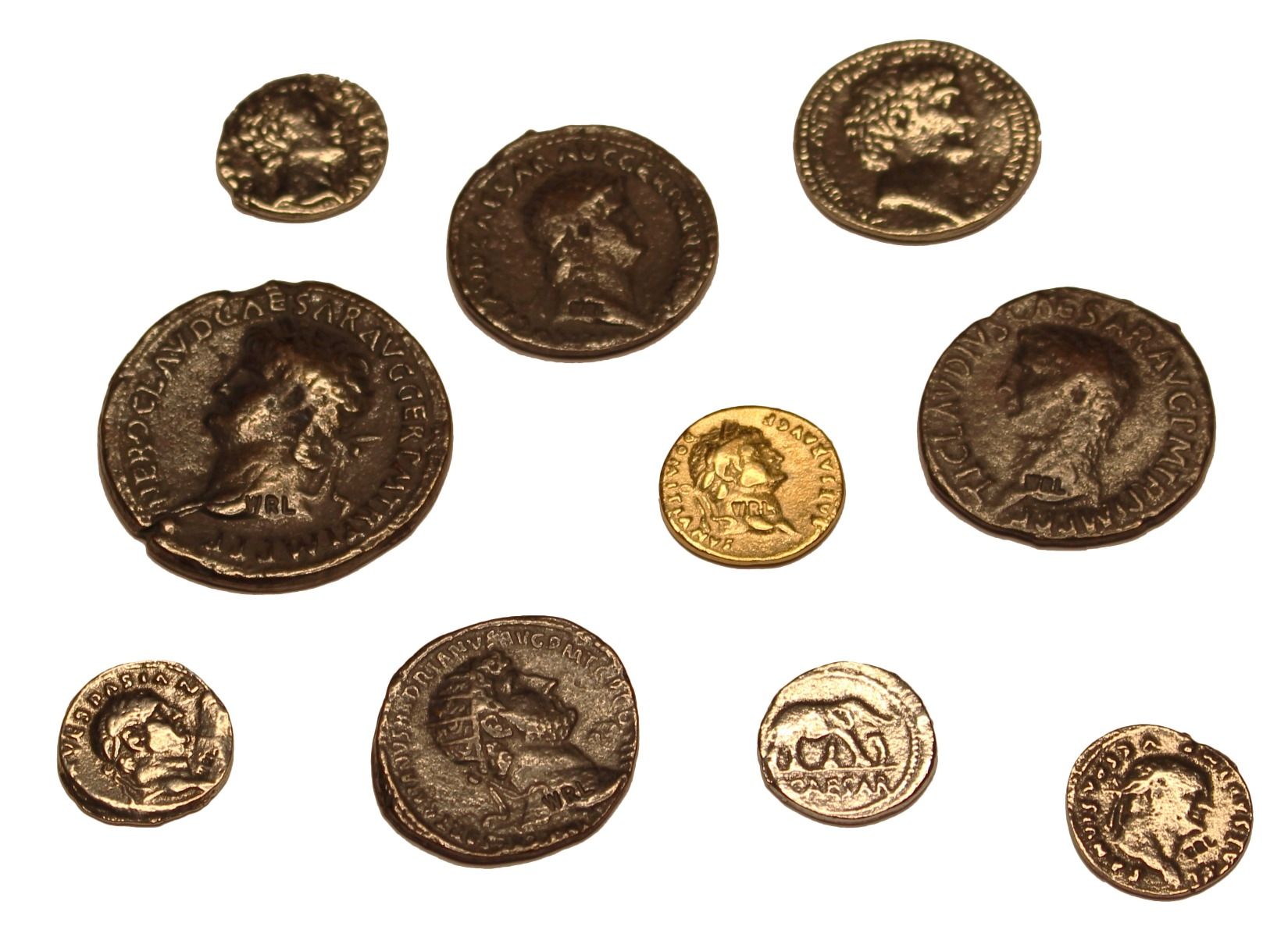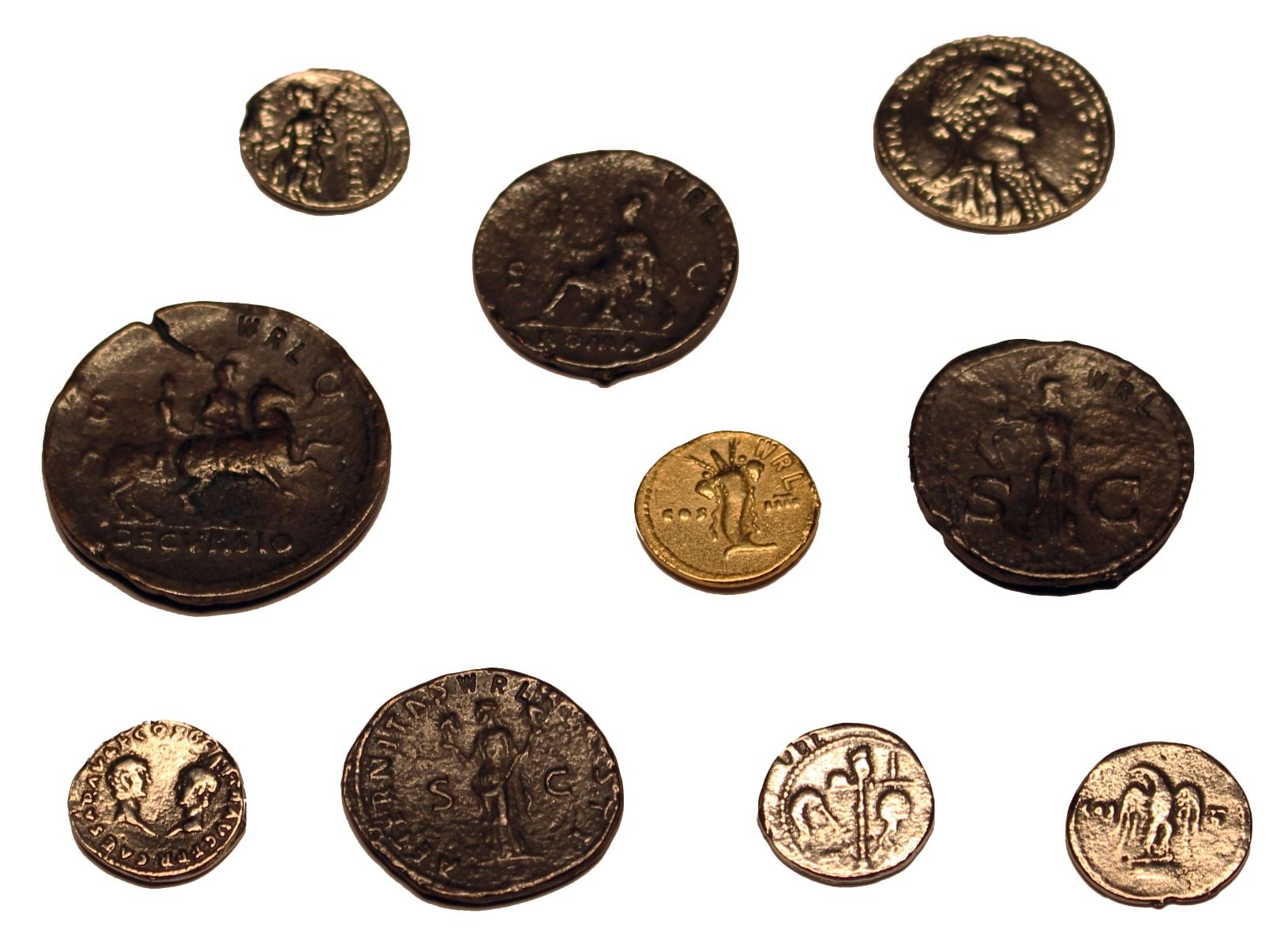10 Roman coins - replica
Coin collection with 10 Roman coins
You will receive a collection of 10 Roman coins. Aureus of the Domitian. Denarius of Titus, Denarius of Augustus, Denarius of Caesar, Denarius of Vespasian, Sestertius of Nero, Dupondius of Nero, Dupondius of Hadrian, Ace of Claudius, Tetradrachme of Cleopatra.
1 Aureus = 25 Denarii, 1 Denarius = 25 Sestertii, 1 Sestertius = 2 Dupondii, 1 Dupondius = 2 Ass. A pig costs 75 denarii (prices handed down for the 1st and 2nd century).
Traditional prices for the 1st and 2nd century.
annual salary of a legionary = 300 denarii
a simple meal with wine = 2 sesterces
a bushel (8.75 l) of wheat = 4 sesterces
a bushel of flour = 10 sesterces
one clay lamp = 1 as
half a litre of country wine = 1 ace
one terra sigillata bowl = 5 sesterces
one pig = 300 sesterces
one donkey = 500 sesterces
one ox = 800 sesterces
a slave = up to 2000 sesterces
"Pecunia non olet!"
Money does not stink
Emperor Vespasian had taken over from his predecessor Nero a state that was almost bankrupt.
Vespasian reorganised the public budgets with great success. His ingenuity in increasing state revenues was great. Among other things, he introduced a tax on public latrines. When his son Titus objected to this, he held some coins from the tax revenue under his nose and asked if this smell bothered him. Titus had to concede that the money did not smell:
Pecunia non olet.
The saying has survived to this day to describe the possession
of money from dubious sources of income.
The public toilets in Paris are still called "Vespasienne" today.
In Italy, too, the public toilets are called "Vespasiani".


